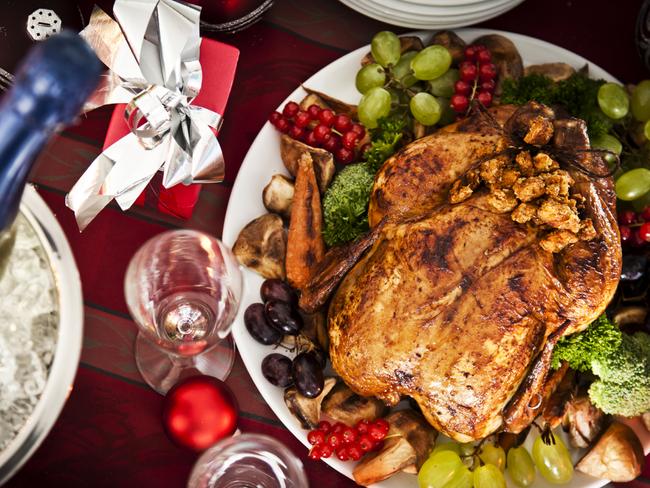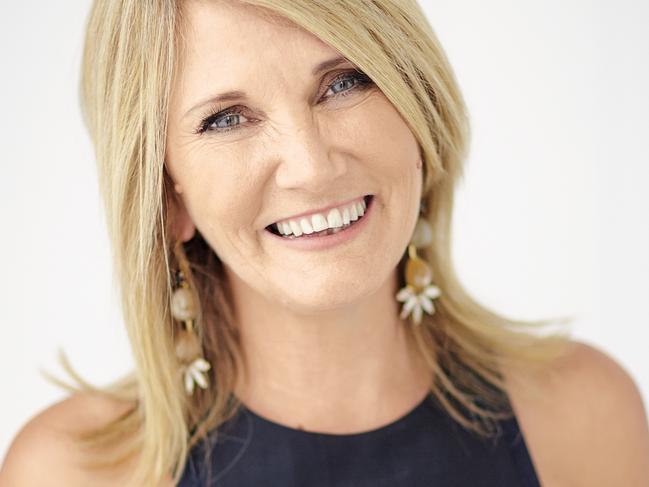All you need to know about intermittent fasting as Taste.com.au reveals its new book
Aussies will be madly searching for advice on healthy living as the new year rolls in, but there’s one diet that extends well beyond weight loss.

Nutrition
Don't miss out on the headlines from Nutrition. Followed categories will be added to My News.
Australians panic about their weight after the Christmas-New Year break with online searches for advice on healthy eating ballooning in the days immediately after.
According to Taste.com.au data, the two peak days for alarm are the final Sunday and first Monday back to work after the New Year.
The average number of searches for ‘healthy’ across those two days this year was 209 per cent higher than the annual daily average, meaning next Sunday, January 5 and Monday, January 6, 2020 will be crunch time.

It comes as experts back the health benefits of intermittent fasting to coincide with the launch of Taste and HarperCollins Australia’s book The Fast Revolution.
Intermittent fasting — the most searched diet of 2019 on Google – is an eating pattern that cycles between periods of fasting and eating. It doesn’t specify which foods you should eat, but rather how much and how often you should eat them.
Associate Professor Leonie Heilbronn, group leader of the University of Adelaide’s Obesity and Metabolism group, said the benefits of intermittent fasting go well beyond weight loss.
A recent study conducted by her team found that obese women lost more weight and improved their health by fasting intermittently while following a controlled diet.
“We saw intermittent fasting was better for a bit more weight loss, a bigger reduction in insulin levels and also in cholesterol, for reduced risk of diabetes and cardiovascular disease as well.”
Assoc Prof Heilbronn said choosing the right variation “depends on your goals”.
“If your goal is to improve your health, the 16:8 (where you fast for 16 hours every day with an eating window of 8 hours) will work very well. There’s a lot of studies showing eating in time with your rhythm – so just eating from 10am-6pm every day – is really, really, good for your health. It doesn’t really do much for your body weight, you lose only about two to three kilos, but it can reduce diabetes and cardiovascular risk,” she said.

For weight loss the 5:2 is good if you’re aiming for 4kg to 6kg off in 12 weeks at about 20 per cent calorie restriction.
With the 5:2 approach, you eat what you like five days a week, and on the other two days you limit your calories. The latest science suggests that 800 calories is a good target for the fasting days.
“If you want to take that a bit higher you could do 4:3 with three days of fasting every week and are more likely to lose 8 to 10kg,” she said.
Intermittent fasting has also proven to improve performance which is why it’s a popular choice with sportspeople.

Sports nutritionist Steph Lowe practices and advocates the eating plan.
Ms Lowe, a triathlete and new mum, says intermittent fasting boosts energy levels because it teaches the body to burn fat before fuel.
“When we burn sugar it causes a lot of inflammation. Burning fat is anti-inflammatory so it’s the best thing we do for our ongoing performance,” she said.
“It’s very beneficial for endurance athletes.”
Ms Lowe prescribes a whole food diet to her clients packed with plant foods, protein and small amounts of carbohydrates.
“Often people don’t talk about food quality yet it’s the most important thing we can for health.”

Taste.com editor-in-chief Brodee Myers-Cooke said there’s so much evidence around intermittent fasting that can’t be ignored.
“When it comes to healthy eating, all of us at taste.com.au are huge believers in following the science, that’s why we had to do this book,” she said.
The Fast Revolution is especially designed for food lovers who don’t want to be bothered constantly counting calories.
Every recipe has all the nutritional info you need as well as at-a-glance key guides to vegan, vegetarian, gluten-free and even make-ahead options
“The beauty of The Fast Revolution is all the hard work is done – all you need to do is choose from a huge range of recipes by following our mix-and match guides,” Cooke said.
“It’s basically a game-changer. We reckon it’s set to be 2020s most simple and delicious health booster.”
The Fast Revolution, from Taste and HarperCollins Australia, on shelves January 20 and available to pre-order now.
